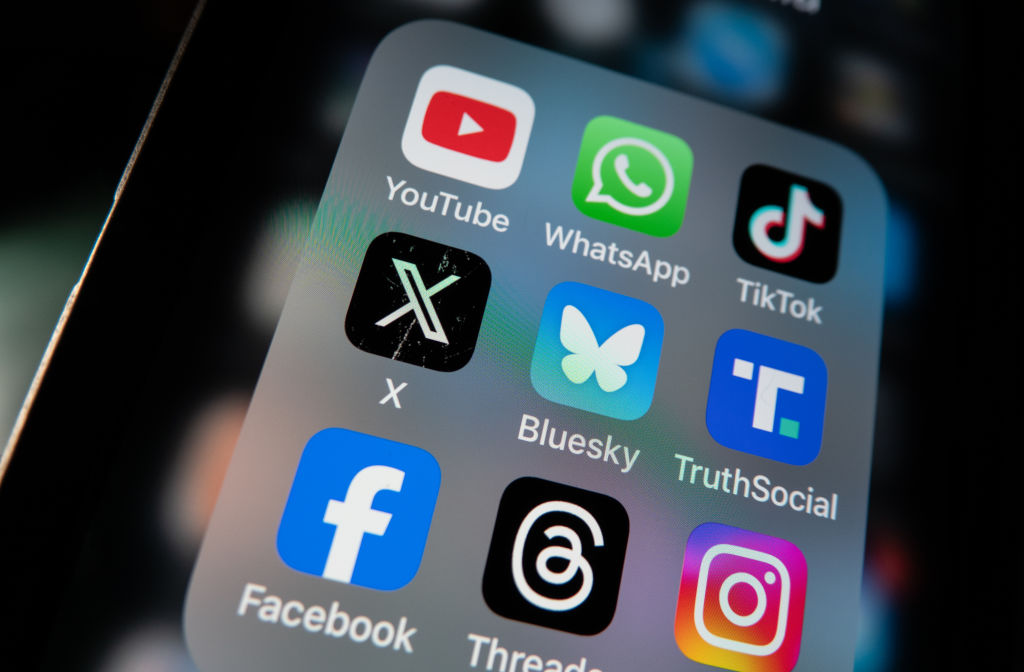TikTok, the Chinese-owned short-form social media platform, has lately been in the spotlight on both sides of the Atlantic. Not without good reason. As social media have become a principal source of information, democracies need to set rules that protect their core principles.
In the United States, a total ban is expected to go into effect on January 19, 2025, unless TikTok’s current owner ByteDance divests its US app. The platform is accused of sharing user data with the government of China and spreading psychologically harmful content.
ByteDance appealed the decision to the US Supreme Court. Whether or not the justices decide to weigh in, there is little doubt that TikTok, along with other platforms, contributes to mental health problems of its users, particularly the young.
Influencers offer simplistic solutions for serious issues that no social media post can fix. We know that plastic surgery trends will not fix girls’ body image problems, that the online world of manosphere will not cure boys’ insecurities, that brightly coloured snacks will not give you anxiety nor will pseudo-scientific diets cure your depression.
And that is before we even turn to the social media effect on modern marketing or politics.
That is where TikTok recently attracted unprecedented attention in Europe. The platform has been cited as a key element in the decision to cancel the first round of the Romanian presidential election. The Romanian Supreme Court decided that foreign interference behind a number of TikTok posts was to blame for the surprise win of the eurosceptic candidate, Călin Georgescu.
Of course, both cases have elicited strong reactions. In the United States, social media users and professionals are in shock. Many public figures and countless businesses rely on TikTok in order to sell their personal brands and products. Social media have after all become an integral segment of modern marketing.
At the same time, social media undeniably influence the way modern democracies work. Especially as traditional and institutional media have become less credible and are no longer trusted by the people, voters turn to alternative sources of information.
Not that social media are by definition more credible than traditional media. However, many believe social media to be more free. The fact that anyone can post and interact can create the illusion that in the world of online platforms there are no overlords or overlooking authorities. Needless to say, this is not true.
Social media platforms too have owners, bosses, controllers and agendas. In most cases, rules and regulations, community standards and so called fact-checkers do not ensure or safeguard freedom of speech and expression. Neither do algorithms promote only what the users read, watch and like.
The case of X, formerly Twitter, is telling. Before Elon Musk bought it and took over its management, it treated conservatives like dissidents. Pretty much the way Facebook still does, it would penalise and ban users and content which would not be in line with the liberal, progressive and woke agenda.
The Twitter change of ownership did not only turn X into the only major social media platform that truly upholds free speech. It also made it a crucial factor in the last US presidential election: X became an equaliser, as users who were not allowed to express themselves elsewhere found a platform where they could speak freely.
Allowing every voice to be heard is a good thing, as long as it does not contradict basic democratic principles. Amplifying some voices, or silencing others, on the other hand, can seriously disrupt the democratic process. This is what TikTok is being accused of in Romania.
However, while safeguarding the rules of a democratic vote is very important, cancelling the actual result of an election allegedly because of social media interference is a problematic, illiberal and dangerous thing to do.
Social media do need a regulatory framework. But this is something that should happen a priori and irrespectively of electoral results. To cancel somebody who won at the ballot because he appeared too much on TikTok is as ridiculous as cancelling an election winner on the grounds that he appeared too much on television.
“The medium is the message” once wrote the pioneer of media theory, Marshall McLuhan, and he was right in many ways. It is the technology itself that influences the nature of a message by defining its shape and form. At the same time, it is the character of media brands which sets the tone of the content.
Misinformation and manipulation can come from all sides: Users spreading fake news, governments engaging in censorship or propaganda, sovereign players weaponizing algorithms. The only way to avoid what is about to happen in the US, or what has just occurred in Romania, is to apply and observe clear rules.
Governments and international institutions should not be in the business of telling us what to say, or what not to say. Governments should not be allowed to own international social media platforms either. The only thing they need to do is ensure that we are free to express ourselves as we please.
This is what the elites fear the most. Inquisitive and vocal individuals and journalists, honest debates and multidimensional media. By not setting clear and straightforward rules they are not letting us have it. Instead, they come to the rescue whenever they feel threatened. We need a framework that will rescue us from such rescues.





Von der Leyen has just turned the EU into a cheerleader for Islamist terrorism